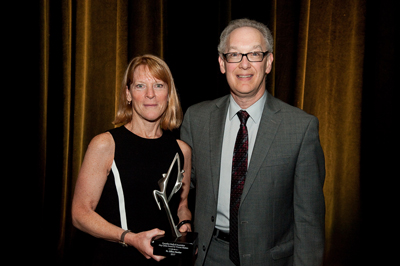Fall 2017 (Volume 27, Number 3)
Get Out and Mingle
By Philip A. Baer, MDCM, FRCPC, FACR
Download PDF
“Everyone you will ever meet knows something you don't.”
– Bill Nye, "the Science Guy"
Rheumatology is the happiest specialty, according to the American College of Rheumatology (ACR). Rheumatologists are pleasant, collegial and easy to work with, according to my contacts in industry (of course, they may express similar platitudes to other specialists they meet!). At our rheumatology journal clubs and rounds, we are often portrayed as the ultimate diagnosticians, figuring out difficult cases featuring obscure constellations of symptoms, which have stumped both general practitioners and other specialists.
Yet there is much to learn from other physicians and healthcare professionals. Many of the most memorable educational activities I have participated in recently have been cross-disciplinary. Our core diseases naturally lead to interactions with ophthalmologists, dermatologists and gastroenterologists. The latter used to thank us facetiously for enriching them through the epidemic of nonsteroidal anti-inflammatory drug (NSAID) gastropathy, but more recently the interface is all about inflammatory bowel disease and the gut microbiome. With cardiovascular disease now the leading cause of death for our patients, we might want to try to meet with cardiologists more than we have historically. In all these dealings, we can share, teach and learn to the benefit of our current and future patients.
Keeping abreast of developments in rheumatology and the comorbidities of rheumatic diseases is challenging, but sharing with medical colleagues in other disciplines around other issues is also of great importance. As physicians and allied health professionals, we are all struggling with fiscal constraints, increasing patient and regulatory demands, and issues of professional satisfaction and work-life balance. I was reminded of this when I was recently fortunate to be selected as an Ontario delegate to the 150th anniversary meeting of the Canadian Medical Association (CMA), held in August 2017 in Quebec City. Only four out of about 500 attendees were rheumatologists, and I crossed paths with two of the other three.
I was struck by the energy and dynamism of Canadian physicians, and the strength of our younger colleagues. The focus was on innovation, with keynote speakers from the worlds of art and technology inspiring us with their stories and achievements. From 3D printing of finger splints (Julielynn Wong, MD) to functioning as a professional dancer with a prosthetic foot (Jacques Poulin-Denis), there were lessons applicable to rheumatology. We debated national pharmacare, bullying and burnout within the profession, the opioid epidemic, as well as medical assistance in dying (MAiD). The latter made news recently when an Ontario patient with painful osteoarthritis was granted permission to proceed with MAiD, so rheumatologists could be faced with becoming involved1.
The highlight for me was the CMA Awards Gala. The Ontario Rheumatology Association (ORA) and CRA dance floors may be busier, but the accomplishments of the CMA award winners, from medical students to senior physicians, were unparalleled. The winners ranged from a medical student who started Zombies Hungry for Organ Donation to pioneers in MAiD, HIV therapy, military critical care medicine, prenatal screening and wide-awake hand surgery. I am proud to have been present when one of our own, Dr. Gillian Hawker, was honoured with the CMA May Cohen Award for Women Mentors (see photo from CMA).
Rheumatology is a wonderful specialty and career, but there are many positive developments to be explored in the rest of medicine as well. Get out there and mingle!
Reference:
1. "Woman at centre of Ontario-assisted death case dies. Available at: www.thestar.com/news/crime/2017/08/10/woman-at-centre-of-ontario-assisted-death-case-dies.html. Accessed on September 22, 2017.
Philip A. Baer, MDCM, FRCPC, FACR
Editor-in-chief, CRAJ
Scarborough, Ontario

Dr. Gillian Hawker and Dr. Philip Baer at the 150th CMA anniversary meeting.
|
